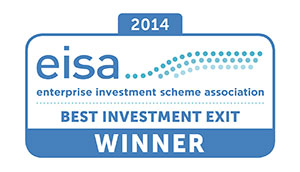|
Parkwalk are delighted to have closed an investment in Quethera, a...
|
|
|||||
 |
|
|||||
|
Dear , Quethera aims to develop a product for common ocular conditions based on proven and safe recombinant adeno-associated viral (rAAV) vector technology. Quethera will employ dual rAAV2 vectors, delivering multiple therapeutic transgenes aimed at providing sustained and potent efficacy, mimicking poly-pharmaceutical approaches to disease management common to clinical practice. It is at a very early stage although its technology has already shown some very promising results in the Laboratory. Primary open-angle glaucoma (POAG) is the second most common cause of blindness in the world after cataract and is becoming increasingly prevalent as people survive longer into old age. Glaucoma may continue to worsen in patients despite excellent management of intraocular pressure (IOP), the primary risk factor for POAG, leading to blindness in 1:8 patients over 15 years. Glaucoma is characterised by loss of retinal ganglion cells (RGCs) and there is currently no therapy which preserves their function. Gene therapies for certain ocular conditions offer significant advantages over topical and regular ocular injections. The ability of gene therapy to enable cells in the eye to produce therapeutic proteins in a constant manner at the target site (effectively creating cell factories) following a single administration eliminates the requirements for regular dosing and may reduce overall therapy costs. Moreover, for rare genetic conditions where patient populations might be too small to be economically considered for a traditional drug discovery approach, gene replacement therapy may prove to be more cost effective. Use of Proceeds Establish operations and conduct research in the University Prove the scientific principle in animal models that delivery of the gene products leads to neuroprotection. File initial patent applications. The potential market A study by the U.K. Guide Dogs for the Blind Association in 2003 estimated the total cost to the state of glaucoma was £38 billion a year. Approximately 10% of this (£3.6 billion) constituted direct health costs (G.P. visits, diagnosis costs and treatment) whilst £34.5 billion was due to indirect non-treatment costs, such as requirements for social services and loss in industrial productivity. The report estimated that if 10% of glaucoma cases were picked up earlier through screening the government would save around £1 billion a year in non-treatment costs alone. In the U.S. around 5,500 patients go blind every year from this condition (Research to Prevent Blindness) costing the U.S. an average of $2.8 billion additional direct annual healthcare costs and lost productivity. At the moment, the cost of Quethera’s proposed Product to the NHS and other worldwide healthcare systems cannot be calculated due to unknown factors including cost of manufacturing, packaging, distribution and administration. We estimate, however, that pricing-reimbursement strategies would certainly favour the introduction of Quethera’s Product to the glaucoma treatment armamentarium and thus this therapy has the potential to be significantly profitable across westernised health providers. Management Dr. Peter Widdowson,CEO, has over 30 years of drug discovery experience during which he has worked on a number of small molecule, protein and gene therapy approaches to managing disease. He has a background in researching therapies for indications as diverse as ophthalmic, neurological and psychiatric disorders, type-2 diabetes, oncology, gastrointestinal motility disorders and inflammatory conditions encompassing inflammatory bowel disease and rheumatoid arthritis. He has held a number of senior scientific roles within Servier (Research Group Leader), AstraZeneca (Senior Scientist and Project Research Manager), Pfizer (Senior Scientist and Project Research Manager), OSI Pharmaceuticals (Director of Pharmacology) and most recently, whilst Head of Preclinical Development at Oxford BioMedica was responsible for overseeing and managing the development of three lentiviral vector gene therapies for wet age-related macular degeneration (PI; Prof. Peter Campochiaro; Wilmer Eye Hospital, Johns Hopkins University, Baltimore), Stargardt disease (PI; Prof José-Alain Sahel; Institute de la Vision, Paris) and Usher 1B syndrome (PI; Prof. Richard Weleber, Casey Eye Institute, Oregon Health & Sciences University, Portland) which are all currently in Phase I/II clinical development. Dr. Widdowson has experience in all aspects of preclinical and early stage development from animal model proof-of-concept studies using a variety of species including non-human primates, through ADME and pharmacokinetic evaluation, safety and GLP toxicology studies, CMC production and testing, preparation of regulatory documents, clinical trial design and biomarker identification. Prof. Keith Martin, CTO, who will act as a consultant for all three programmes and potentially may be selected as the Principal Investigator for the Phase I/II clinical trial for Product 1. Prof. Martin is a Research Professor in the Department of Clinical Neurosciences and Ophthalmology as well as being an Honorary Consultant Ophthalmic surgeon working within the NHS at Addenbrooke’s Hospital where he is also Lead Clinician for glaucoma. Prof. Martin’s research interests include mechanisms of RGC death in glaucoma and attempts to develop RGC protection strategies to slow the progression of glaucomatous visual loss, and ultimately to restore vision. Keith Martin graduated in neuroscience from Cambridge University in 1990 and from Oxford University Clinical School in 1993. He trained in general medicine and neurology at the Hammersmith Hospital and the National Hospital for Neurology & Neurosurgery in London and the John Radcliffe Hospital in Oxford. His Higher Specialist Training in Ophthalmology was undertaken in Cambridge before three years of Research and Clinical Fellowship Training in glaucoma with Harry Quigley at the Wilmer Eye Institute, Johns Hopkins University, Baltimore and with Prof. Peng Khaw at the Institute of Ophthalmology, UCL. His research group was the first to demonstrate that increased expression of BDNF through AAV-medicated gene therapy demonstrated a protective effect on RGC loss in a model of glaucoma. Investment Case While the technology is still at an early stage it is showing great promise in the area of Glaucoma. This is a substantial market with unmet clinical needs. The novel approach is yielding a platform technology which will be pertinent to other disease areas. This will make the company very attractive to Big Pharma once the technology is proven. The founders are extremely experienced and have shown in previous ventures a commercial focus. |
||
|
|||||
|
||
|
|||||

